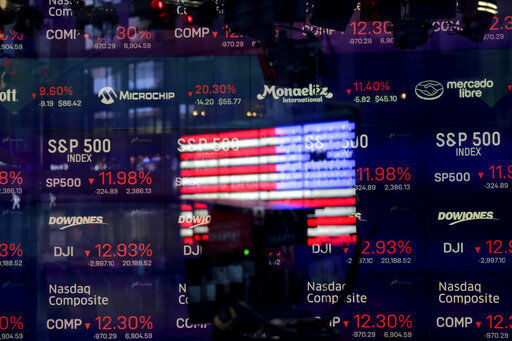Companies that cater to the “new normal” of working and shopping from home are rushing to go public.
2020 could turn out to be the best year for the IPO market in two decades. Newly public companies have piggybacked on the broader stock market, which made a soaring recovery in spring and summer after COVID-19 and the ensuing lockdowns derailed the longest bull run in history.
As investors shifted their focus to equities, private companies searching for funding took notice.
“A lot of companies sitting on the sidelines waiting to go public really used this as an opportunity,” said Lindsey Bell, chief investment strategist at Ally Invest.
Through August, 143 companies went public and brought in more than $50.4 billion in proceeds, the most since 2014. Ally Invest projects up to 206 companies could go public by the end of the year, with proceeds from IPOs hitting $72 billion.
Technology companies have been well represented in the IPO market this year, especially companies that are positioned to take advantage of the shift to working and shopping from home. Snowflake, a cloud-based data company, saw its stock value double from its initial price, making it worth more than $70 billion in its debut. The company is backed by Salesforce and Berkshire Hathaway.
Software company Sumo Logic gained 22% in its debut. Internet-based insurer Lemonade also saw its stock value double in its debut in July.
“The fundamentals really are there for these types of companies to do well and to do well without significant economic growth,” Bell said.
Still, it’s difficult to determine which IPOs will be booms or busts, Bell said. Investors have to really think about the risks and be prepared for a long-term relationship with the company, rather than trade on its ups and downs.
About half of U.S.-based stocks that went public from 2015 to 2019 were trading below their IPO prices a year later, Bell said. Those stocks include well-known companies like Uber, Fitbit and Blue Apron.
The IPO market will likely remain strong, Bell said, “as long as the market behaves.” The broader market has pulled back in September as the economic recovery slows down.
Investors are facing a wide range of uncertainties, including the lingering virus pandemic and political squabbling about additional financial aid, as well as the upcoming presidential election.
“Reality is sinking in for a lot of investors,” Bell said. “We’ve come so far so fast.”


